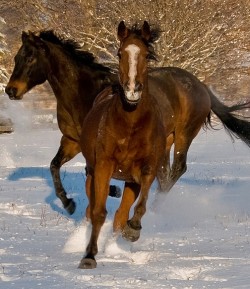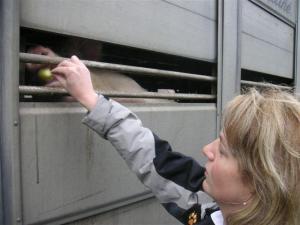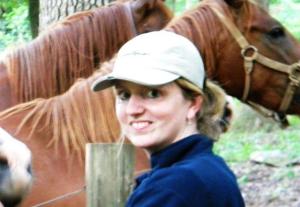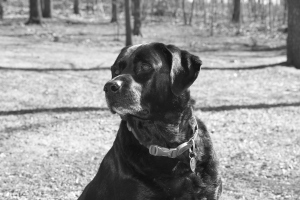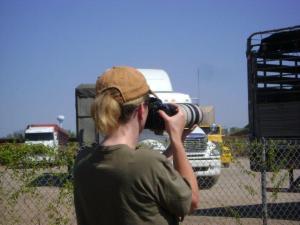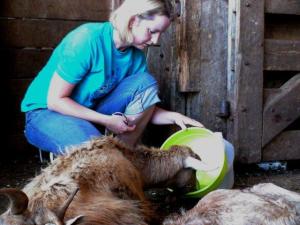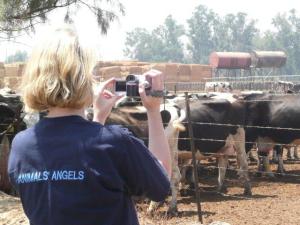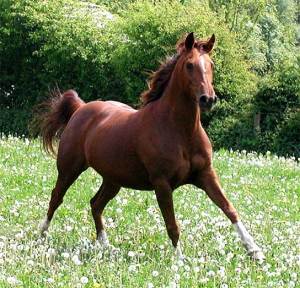Sitting Down with Sonja Meadows
~~~
We all have a reason to be here on Earth, and it can be for numerous things we are to do, achieve, accomplish or reach for. We are nudged quietly or it might be a slap-in-the-face wake-up call. Whichever it is, the moment of impact is what always intrigues me. For Sonja Meadows she feels the call of our animals, the peril they are in, the torment they endure and the real need to step up and take action.
The USDA does not have the budget or the investigators to handle the workload or enforce the laws concerning horses in the pipeline. This left an opening that begged the need for a natural leader to step in and take the reins. The in-depth investigative work Animals’ Angels conducts, is the kind that shakes the very foundation of our beliefs leaving most of us wondering why things are as they are, each time these heinous acts are uncovered. Sonja Meadows has answered the call and stood her ground to deliver the truth.
Anne: I have been longing to know precisely what occurred and why you felt compelled to take charge and help these poor animals. Would you please describe the beginning of your involvement in this supreme endeavor? When did you become aware of the plight of horses?
Sonja: Animals’ Angels was born out of the belief that bringing first hand information and reliable documentation of what farm animals endure at auctions, slaughter plants and feedlots to mainstream public as well as government officials would be a very efficient way to improve conditions for all of them. Creating awareness is the first step to bring about change.
When Animals’ Angels started this work in 2007, there was very little information out there about how kill buyers operate, their transport routes and the big collecting stations. We started putting them on the map and it has become much more difficult for them to operate under the radar. Several have faced or still face convictions due to our investigations and others have been forced into “voluntary” compliance.
Anne: I’ve noticed by the newsletters and reports that investigations take place in so many different locations, far from home. There must be a lot of travel involved in documenting the facts in these cases. How do you feel this has changed your life? What is a normal routine for you?
Sonja: To date, we have conducted 113 investigations in 28 states this year – so, yes, a lot of traveling is involved. I just returned from a ten-day investigation at the Mexican border and I am getting ready to head out again soon. The normal routine for an AA investigator is to prepare for the upcoming investigation by: researching location & target, booking flights, hotels, rental cars, and confirming all the extensive equipment needed for a successful investigation is ready.
During the investigation you never know what will happen. You must plan very carefully in order to be prepared for all scenarios. You could face a full forty-hours without sleep when following a truck, or you might sit in your car for days on end, waiting for something to happen. We have been caught in snowstorms and even flash floods. During last week’s assignment in Texas, I hid in some bushes while filming. To my chagrin I stumbled into a wasp nest and was stung multiple times.
But then there are nice moments when curious neighbors see you filming all day long, and they make kind gestures like bringing us refreshing glasses of lemonade and slices of cake to show their support for what we’re doing. This work has changed my life significantly. It’s now much more fast paced, exciting and there’s hardly any down time. I’m dedicated to making changes for these animals, so I have willingly grown accustomed to the demanding schedule.
Anne: Have you been a great lover of animals all of your life? When did you notice your attachment to them and your concern of their welfare? Which types of animals or family pets do you have?
Sonja: I have been an animal lover as long as I can remember. Currently, our family pet is a black lab. Her name is Hope and she was rescued from a very abusive environment. The visible scars indicate that she had been brutally beaten when she was a puppy. Having told you this I have to say that Hope is the most loving and protective companion you can imagine. It still amazes me that animals are so capable of trusting and loving again after enduring years of abuse. I notice that a lot during our investigations, too. Horses that are completely covered in scars that they resemble walking skeletons, walk right over to you to lick your hand. It is heartbreaking!
Anne: You are involved in the movement against horse slaughter. Last fall you attended Horses On The Hill, alongside celebrities that want to make a change. A year ago, you spoke at the International Equine Conference, where you mentioned an alliance with a cross-Atlantic campaign. The new October Newsletter mentions a large-scale anti-horse slaughter campaign gearing up in the spring of 2013. Can you elaborate on this subject?
Sonja: The details of this cooperation are still confidential; therefore I can’t tell you much. I am very excited about this cooperation though and believe that it will have a lot of positive impact for our horses.
Anne: Your investigations prove repeatedly that farm animals and horses suffer greatly in this country. Even with the laws on the books set down in order to give them a modicum of protection in this pipeline, can you point out a better direction for government auditors and tell us how are we going to stop this?
Sonja: I believe the key to a better future for the animals is to increase the public’s awareness, to fight for stronger animal protection laws and to insist on a more efficient enforcement of existing laws and regulations. We document what is going on in the USA in the middle of nowhere, in the middle of the night, and report our findings to the public. If we can get citizens to act on these issues and demand change with one unified voice, it is going to happen.
Anne: There was such a good story about you and a horse named Hawser. What made you go over to that particular trailer that day?
Sonja: I walked over to the trailer because he was owned by a known kill buyer and I heard the horses kicking inside the trailer. When I saw that they were Thoroughbreds I knew that the only way to save these horses was to find out who they were. That’s the reason I immediately flipped up their lips in order to see their tattoo numbers. Hawser is such a sweet horse, I am truly happy that everything worked out the way it did.
Anne: I want you to tell about the play of emotions you and your investigators experience when you are monitoring. Especially that horrid instance two weeks ago in Texas, when the driver started accosting some downer horses with a pointed stick! Let our readers know how powerfully this affects the people documenting this abuse & trying to stop the chaotic madness. How difficult is it to refrain from physically stopping the abuse?
Sonja: Sometimes it is very, very hard. However, all of my investigators are instructed to always remain professional with their words and actions. You can’t demand respect and initiate a constructive dialogue if you act like a maniac. Our organization is well-respected among government officials and industry is willing to work with us on improving conditions because they know that they can trust our fact-finding. If laws have been violated, we demand prosecution to the fullest extent. However, if someone does a good job, we put that in our reports as well and give credit where credit is due.
Anne: You videotape scenes that are not only excruciatingly difficult to watch, but they must be agonizing for you to witness. This is a traumatic thing you and your investigators do. It is a necessary thing in order to accurately describe what is really going on. Seeing the total removal of the kill buyers’ feelings, or the handler that doesn’t mind using an electric prod. The auctioneer who thinks it’s just another day. What kind of nation have we been reduced to? This undertaking is painful before, during and a long time after the experience. I don’t think the public realizes how hard this is on your mental, physical and spiritual well-being, so I want you to take off the hard armor of protection and confess what is in your heart.
Sonja: I do lay awake at night thinking about the animals I saw the day before, the suffering, the horrific injuries … the injustice of it all. I sometimes get very angry and frustrated that it takes so long for things to improve or to change, when it would be so easy to do the right thing. I still remember every single animal I have found dying or injured and I believe I always will.
I think that is how the idea for our annual fundraising event “Light the Sky” was born. Every year, our investigators and I light candles for all the animals that crossed our paths that year and give them names to remember them as individuals, not as the horse with Back-tag #4356, or Production Unit 112. Lighting these candles helps us cope, but it’s also a way to renew our vow that we will continue to fight for a better future for all of them.
Anne: When I asked about non-ambulatory animals you explained what they are and also the dreadful conditions where some of our “Dairy Cows” live. Would you tell us more about this please?
Sonja: A non-ambulatory animal is also referred to as a downer. This means that an animal is unable to rise or walk without assistance. There are many different reasons why an animal can become a downer, such as heat stress, exhaustion, injury, or being trampled by other animals in a packed trailer or pen.
“Spent Dairy Cows” (as industry calls cows at the end of their productive milking period when they are shipped to auction and sold to slaughter), are likely to become non-ambulatory, because their bones are weakened from years of intensive milk production (calcium deficiencies) and break easily. If they slip and fall, chances are that they will not be able to rise again.
Animals’ Angels is working with auctions nationwide to establish protocols on how to deal with these non-ambulatory animals humanely, by ensuring that they are never moved with chains, skid loaders or other devices.
~~~
Animals’ Angels Inc continues to “be there with the animals”. They outline the ongoing abuse of our animals, highlighting deplorable conditions, uncovering kill buyers, and documenting illegal acts. They videotape and photograph the lack of care by those handling animals in transit, right down to the outright neglect of some equine that are mercilessly and slowly starved to death.
The important news is that we all can act and get involved by sharing (on social networks) the links to our blog, our website, any news stories on this subject and by getting in touch with our State’s Representatives. If you want to help get these bills passed into laws and to stop horse slaughter of our horses, then you should act today. Write or phone your Representatives twice weekly.
Consider donating on a monthly basis to keep this team of Animals’ Angels defending those without a voice. Tell your family and friends to repeat what you do to lend support so our non-profit organization can continue to do what is important. Remember undercover investigations are quite costly and since most people would never dream of going to these auctions, feedlots or following transport trucks for hours on end, there is an easier way for us to insure this work continues.
Click the donate button and make a one-time donation or you may consider a monthly automatic charitable deposit that will allow your contributions to fund these reports and expenses. We rely on your aid to help fund in this vital work. The government is enforcing the laws we do have. We need to raise the roof so all of America can learn about the fight to end the abuse endured every second of every day by animals who have no voice. Make a difference. Get involved. Please … do it now!
